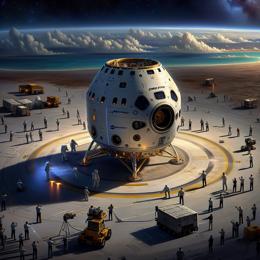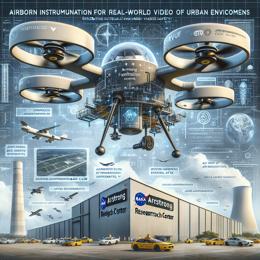Image created by AI
FAA Grounds SpaceX Falcon 9 After Landing Mishap Amid Critical Missions
In a significant setback for SpaceX, the Falcon 9 rocket—one of the most launched vehicles in the world—has been grounded by the United States Federal Aviation Administration (FAA) for the second time this year. This follows a landing malfunction that occurred after a batch of Starlink satellites were launched into orbit. There was an immediate call for an investigation from the FAA after the booster failed to land correctly on its drone ship at sea.
The grounding happened early Wednesday morning, long after the Falcon 9 had completed its main mission: deploying 21 Starlink internet satellites from its Florida launch site. The trouble began during the landing phase of the booster. Footage from the event indicates that the rocket caught fire and tipped over upon attempting to touch down on the autonomous drone ship located in the Atlantic Ocean, marking SpaceX's first unsuccessful landing in over three years. The grounded booster had previously seen 23 successful launches to its name.
This development poses significant challenges to SpaceX, owned by industry titan Elon Musk, and comes amid a densely packed schedule of important launches. Among these is the high-profile Polaris Dawn mission, intended to carry four private astronauts into space to execute the first-ever commercial spacewalk. The mission has faced twice delayed launch attempts due to unrelated weather complications.
Looking beyond commercial endeavors, this grounding could have repercussions for the National Aeronautics and Space Administration (NASA). The agency is currently relying on SpaceX's Crew Dragon capsule to return astronauts from the International Space Station after the Boeing Starliner encountered technical issues. NASA pointed out that while the recent Starlink mission was a commercial venture, it stays well-informed regarding Falcon 9 activities. With the next manned flight set for September 24, it remains to be seen how the FAA's decision will affect the timeline.
The incident has sparked a broader conversation about the role of federal regulation in spaceflight advancement and whether it is hindering the United States' ability to lead in the space race. Critics argue that either a policy overhaul is essential, or that the slower regulatory processes could be intentional barriers against companies like SpaceX that are pushing the envelope of aerospace technology. Others suggest that the FAA may be an oversized bureaucracy that requires downsizing.
For now, SpaceX must navigate the regulatory landscape as part of its ongoing quest to revolutionize space travel and maintain its landmark achievements, such as the unprecedented frequency of its rocket launches and its pivotal role in both commercial and governmental space activities.










